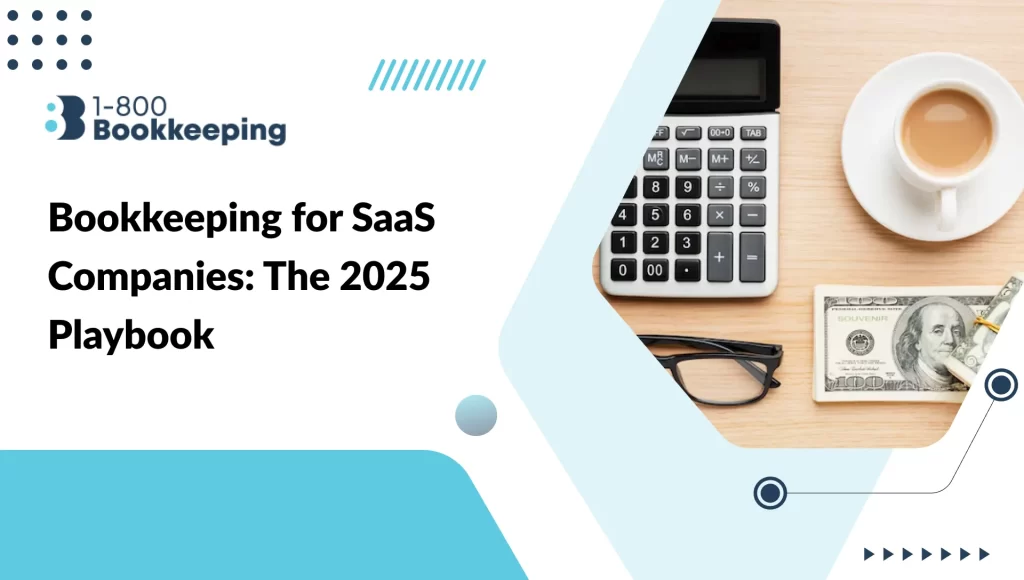Outsourced bookkeeping has become a vital resource for businesses of all sizes, offering a way to handle financial tasks without hiring full-time, in-house staff. Many companies find that outsourcing bookkeeping can save time, cut costs, and provide access to a team of experts. But how do you know if it’s the right choice for your business? This guide will explore the benefits, services, and costs of outsourced bookkeeping to help you make an informed decision.
Why Should I Outsource My Bookkeeping?
Outsourcing your bookkeeping is one of the smartest decisions a business can make. It frees you from the tedious and time-consuming task of managing your financial records, allowing you to focus on what truly matters—growing your business.
Save Time and Focus on Growth
Many business owners find that bookkeeping consumes hours that could be better spent driving revenue. When you outsource, you delegate this responsibility to a team of experts who can handle it more efficiently. They take care of everything, from daily transaction recording to monthly financial reporting so that you can focus on your core business.
Reduce Errors and Avoid Compliance Issues
Mistakes in bookkeeping can lead to costly errors, from misreporting income to missing tax deductions. Outsourced bookkeeping services use skilled professionals familiar with accounting software and tax laws, reducing the risk of errors that can land your business in trouble with the IRS.
Expertise and Flexibility
Whether your business is just starting or scaling rapidly, outsourced bookkeeping services can adapt to your needs. You get access to expert accountants who keep up with the latest regulations and best practices. Plus, you don’t have to worry about managing an in-house team or dealing with turnover.
How 1800Bookkeeping Can Help with Outsourced Bookkeeping
1800Bookkeeping specializes in providing full-service bookkeeping solutions for businesses, helping to simplify financial management through automation and expert support. By outsourcing bookkeeping with them, companies benefit from tailored services such as payroll, tax preparation, catch-up bookkeeping, and monthly financial reports, all managed by a U.S.-based team. Their service is designed to save time, reduce errors, and provide actionable financial insights, allowing business owners to focus on growth.
Explore more about their services at 1800Bookkeeping.
Types of Outsourced Bookkeeping Services
Bookkeeping isn’t a one-size-fits-all service. Depending on your business’s needs, you can outsource specific financial tasks or hand over all bookkeeping functions to a third party.
Payroll Management
Outsourced payroll services ensure your employees get paid on time, every time. These services handle everything from processing payroll checks to managing employee tax withholdings.
Accounts Receivable and Payable
Managing cash flow is crucial to keeping your business afloat. Outsourced bookkeeping services help you track and manage your receivables, ensuring clients pay on time. They also handle your payables, ensuring vendors are paid and expenses are appropriately managed.
Financial Reporting
Understanding your financial health is vital for making strategic decisions. Outsourced bookkeeping services provide regular financial reports, including income statements, balance sheets, and cash flow reports, giving you a clear picture of your revenue, expenses, and overall performance.
Tax Preparation and Filing
Staying compliant with tax regulations can be overwhelming. Outsourcing your bookkeeping means you don’t have to worry about keeping up with changing tax laws. These services prepare your business’s tax documents and even file them for you, ensuring you take advantage of all possible deductions.
Niche Bookkeeping Services
Specific industries, like real estate or healthcare, require specialized bookkeeping services. Outsourced providers often offer tailored services to meet these sectors’ accounting needs.
When Should I Outsource My Bookkeeping?
Knowing when to outsource your bookkeeping can be tricky, but there are some key signs that it’s time to switch.
Startup Phase
If you’re just starting your business, you may not have the budget to hire a full-time accountant. Outsourcing allows you to access professional bookkeeping services without the overhead costs of in-house staff.
Scaling Your Business
As your business grows, so does the complexity of your financials. Outsourcing bookkeeping during rapid growth ensures your financial records are accurate, up-to-date, and compliant with regulations.
Limited In-House Resources
If your in-house staff is overwhelmed or bookkeeping tasks are taking away from more strategic initiatives, it’s time to outsource. Professional bookkeepers can manage your financials more efficiently, helping your team focus on higher-value tasks.
How to Choose the Right Bookkeeping Outsourcing Partner
Finding the right bookkeeping partner is crucial to ensuring your financials are in good hands. Here are some key factors to consider:
Expertise and Industry Knowledge
Look for a bookkeeping service with experience in your industry. Whether it’s retail, real estate, or healthcare, they should understand the nuances of your business and provide relevant financial insights.
Technology and Software Integration
Ensure the provider uses up-to-date bookkeeping software like
QuickBooks, Xero, or FreshBooks, which integrate seamlessly with your existing systems. Cloud-based solutions offer real-time data access, so you’re always in the loop with your business’s financial health.
Transparent Pricing
Outsourcing bookkeeping can be cost-effective, but it’s essential to understand the pricing structure upfront. Many providers offer tiered packages based on the complexity of services. Ask for a breakdown of fees to avoid unexpected costs later.
Communication and Reporting
You want a partner who communicates clearly and timely. Regular financial reports are crucial for decision-making, so ensure the provider can deliver them consistently. Ask about their availability and how often they’ll update you on your financial status.
Security Measures
Your financial data is sensitive, so your outsourcing partner must have robust security protocols. Ensure they use encrypted software and have strict data protection policies to protect your information.
In-House vs. Outsourced Bookkeeping: What’s the Difference?
Many businesses need help to hire an in-house bookkeeper or outsource the function entirely. Here’s a comparison of both approaches.
In-House Bookkeeping: The Pros and Cons
Having an in-house bookkeeper means you have direct control over your finances. You can work closely with them, ask for updates anytime, and receive personalized attention. However, hiring a full-time bookkeeper can be expensive, particularly considering salary, benefits, and office space. Additionally, if your bookkeeper leaves, it can disrupt your operations until you find a replacement.
Outsourced Bookkeeping: The Pros and Cons
Outsourcing your bookkeeping provides flexibility. You don’t have to manage an employee, and the service scales to fit your business needs. Outsourced bookkeepers often bring more expertise since they manage multiple accounts across various industries. The downside? You might not get the same level of personalized service as with an in-house team. Still, the cost savings and access to expertise usually outweigh this drawback for small to mid-sized businesses.
The Cost of Outsourced Bookkeeping: Is It Worth It?
One of the biggest questions for businesses is how much outsourcing bookkeeping costs and whether it is worth it.
Pricing Models for Outsourced Bookkeeping
Most outsourced bookkeeping services offer flexible pricing plans. Depending on the scope of work, you can expect to pay anywhere from $200 to $2,500 per month. Essential services like payroll management and invoicing are on the lower end of the spectrum, while comprehensive financial reporting and tax filing packages are more expensive.
Cost Savings vs. Hiring In-House
Hiring a full-time bookkeeper can cost anywhere from $40,000 to $70,000 annually, not including benefits and training. In contrast, outsourcing is generally more affordable, particularly for small businesses that don’t need full-time bookkeeping support.
Is Outsourcing Worth It for Small Businesses?
For most small businesses, outsourcing bookkeeping is a cost-effective solution. You save on the overhead of hiring an employee and get access to higher expertise and a more efficient financial process.
Conclusion
Outsourcing bookkeeping can save time, provide expert insights, and reduce costly errors. Outsourced bookkeeping offers flexibility and peace of mind, whether you’re just starting, scaling up, or simply trying to streamline your business. If you’re looking for ways to focus on what matters most—growing your business—it’s time to consider partnering with a trusted bookkeeping service.
Take control of your business’s financial future today by exploring outsourced bookkeeping options that fit your needs.
Feeling Overwhelmed by Bookkeeping? We Can Help.
Running a business is demanding, and keeping track of your finances can be a never-ending chore. Many business owners need help with the complexities of bookkeeping, which can leave them frustrated and behind.
1-800 Bookkeeping offers expert services to streamline your financial processes and empower you to make informed decisions.
Our team of seasoned professionals understands the unique challenges businesses of all sizes face. We can help you:
- Free Up Valuable Time: Offload your bookkeeping tasks to our dedicated professionals.
- Gain Peace of Mind: Ensure your financial records are accurate and up-to-date.
- Make Smarter Decisions: Get actionable insights into your business performance through clear and concise reports.
- Feel Confident: Make informed financial decisions based on reliable data.
Don’t let bookkeeping hold you back from achieving your business goals. Contact 1-800 Bookkeeping today for affordable bookkeeping solutions.
FAQs
1. What is outsourced bookkeeping?
Outsourced bookkeeping is hiring a third-party service to manage your business’s financial records. These services handle payroll, invoicing, tax preparation, and financial reporting.
2. How secure is outsourced bookkeeping?
Reputable bookkeeping services use advanced encryption and data protection protocols to secure your financial information. Always verify a provider’s security measures before signing on.
3. Can I customize outsourced bookkeeping services for my business?
Yes, most outsourced bookkeeping services offer customizable packages that allow you to choose the specific services you need, from payroll management to detailed financial reporting.
4. How do I communicate with my outsourced bookkeeping provider?
Communication varies by provider, but most offer regular updates through email or a client portal. Some services provide direct access to a dedicated bookkeeper for questions or concerns.
5. Will outsourcing bookkeeping affect my business control?
No, outsourcing your bookkeeping does not reduce your control over your business finances. You’ll still have full access to your financial data and reports, and you can review and approve any decisions or actions the outsourced team takes.





